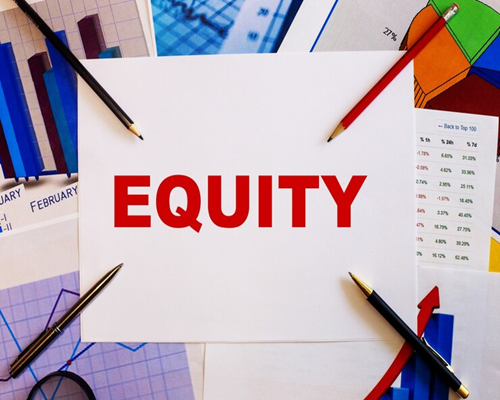INTRODUCTION
Equity Valuation
Equity valuation involves the assessment of a company's common
stock to determine its justifiable market worth. This constitutes
a crucial component of financial analysis, serving as a tool for
informed decision-making by investors, analysts, and firms seeking
investment or financing opportunities.
The process of equity valuation considers a range of factors,
including the company's financial performance, growth potential,
industry dynamics, management competence, and prevailing
macroeconomic conditions. Various methodologies can be employed
for valuation, such as the discounted cash flow (DCF) method,
price-to-earnings (P/E) ratio, and price-to-book (P/B) ratio.

Equity Valuation
There are a number of different ways to perform equity valuation. The most popular methods include but are not limited to:
Comparables Approach:
A company's equity value should bear some resemblance to other equities in a similar class. This entails comparing a company's equity to competitors or other firms in the same sector,
Discounted Cash Flow:
A company's equity value is determined by the future cash flow projections using net present value. This approach is most useful if the company has strong data to support future operating forecasts.
Precedent Transactions:
A company's equity depends on historical prices for completed M&A transactions involving similar companies. This approach is only relevant if similar entities have been recently valued and/or sold.
Asset-Based Valuation:
A company's equity value is determined based on the fair market value of net assets owned by the company. This method is most often used for entities with a going concern, as this approach emphasizes outstanding liabilities determining net asset value.
Book-Value Approach:
A company's equity value is determined based on its previous acquisition cost. This method is only relevant for companies with minimal growth that might have undergone a recent acquisition.
One of the more popular equity valuation approaches is the comparables approach. This strategy evaluates similar companies and compares relevant valuation metrics. The comparables approach is often one of the easier valuations to perform as long as the company being valued as public company comparables.
The comparables valuation can simply be determined by comparing a firm to its key rivals, or at least those rivals that operate similar businesses.
1
Discrepancies in the value between similar firms could spell opportunity. The hope is that it means the equity is undervalued and can be bought and held until the value increases. The opposite could hold true, which could present an opportunity for shorting the stock or positioning one’s portfolio to profit from a decline in its price
Quick Links
© Jaikvik Business India Private Limited. All Rights Reserved.
